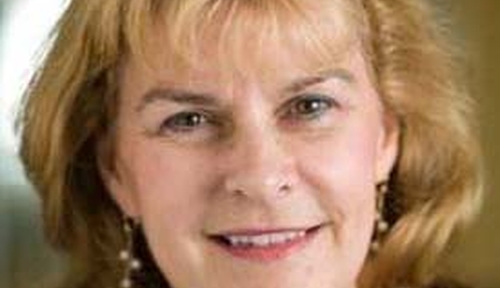Since performing its first bone marrow transplant on April 1, 1983, the University of Nebraska Medical Center and its hospital partner, The Nebraska Medical Center, have evolved into one of the leading bone marrow/stem cell transplantation centers in the world.
The program has performed 4,460 transplants in patients from all 50 states and more than a dozen countries — 4,043 transplants in adults and 417 in children. Most adults have sought the treatment for cancers of the blood, in particular, lymphoma, leukemia and multiple myeloma. Pediatric transplants normally are performed for patients with more aggressive disease such as for acute lymphoblastic leukemia.
“We have an extraordinary team dedicated to improving cancer treatment and care. Their work has increased survival substantially in patients,” said Julie Vose, M.D., chief of the UNMC Division of Hematology/Oncology and the Neumann M. and Mildred E. Harris Professor. “Through the efforts of many, people now have access to some of the best cancer treatment in the world right here in Omaha.”
The adult transplant program, which was founded by Kearney, Neb., native, James Armitage, M.D., performed its first bone marrow transplant on April 1, 1983, while the pediatric transplant program was launched in 1987 by Peter Coccia, M.D. Anne Kessinger, M.D., of Scribner, Neb., pioneered stem cell transplantation. The therapy is now standard practice around the world.
The medical center’s expansive cancer research program has been responsible for advancing knowledge and treatments, said Dr. Vose, who also is an oncologist on staff at The Nebraska Medical Center. Researchers receive funding from a variety of sources, including the National Institutes of Health, and collaborate with some of the top cancer centers in the world such as MD Anderson Cancer Center, Fred Hutchinson Cancer Center, Dana-Farber Cancer Center, Stanford University, Johns Hopkins University, and several European centers.
“We learn through our encounters with patients and our clinical trials. Our experience not only helps our current patients but also will help future patients five or 10 years down the road. In oncology, everything we do is based on research,” Dr. Vose said.
Tawny Roeder is representative of thousands of patients who’ve benefitted from the medical center’s work. It saved her life.
In 2008, the Storm Lake, Iowa resident was just finishing nursing school when she was diagnosed with non-Hodgkin lymphoma. She was referred to the medical center for a transplant and moved to Omaha. She received a transplant and ultimately was able to finish nursing school. She now works as a nurse and lymphoma transplant case manager at the medical center – with the same physician who treated her.
“Having the stem cell transplant completely changed my life,” Roeder said. “I was hopeful that someday I could help and comfort others who were sick. Now, as a transplant nurse, I get to help others through the difficult process every day. Sometimes life’s toughest battle turns into an amazing journey with a fulfilling purpose.”
Dr. Vose, Roeder and others are looking forward to the construction of a comprehensive cancer center on campus, scheduled to be completed in 2016. The center will include an outpatient clinic where patients can access all their cancer needs; a 98-lab research tower; and a hospital with 108 beds dedicated to cancer patients.
“We’re excited to take the next step to advance our work for better treatments and improve the quality of life for those with cancer,” Dr. Vose said. “It’s reassuring to be able to see patients over the years and help them through their illness. There’s nothing better than seeing them return to a normal, healthy lifestyle and have time with their families.”
To read about the significant milestones in 30 years, go to: www.unmc.edu/transplant.
Through world-class research and patient care, UNMC generates breakthroughs that make life better for people throughout Nebraska and beyond. Its education programs train more health professionals than any other institution in the state. Learn more at unmc.edu.
-30-
